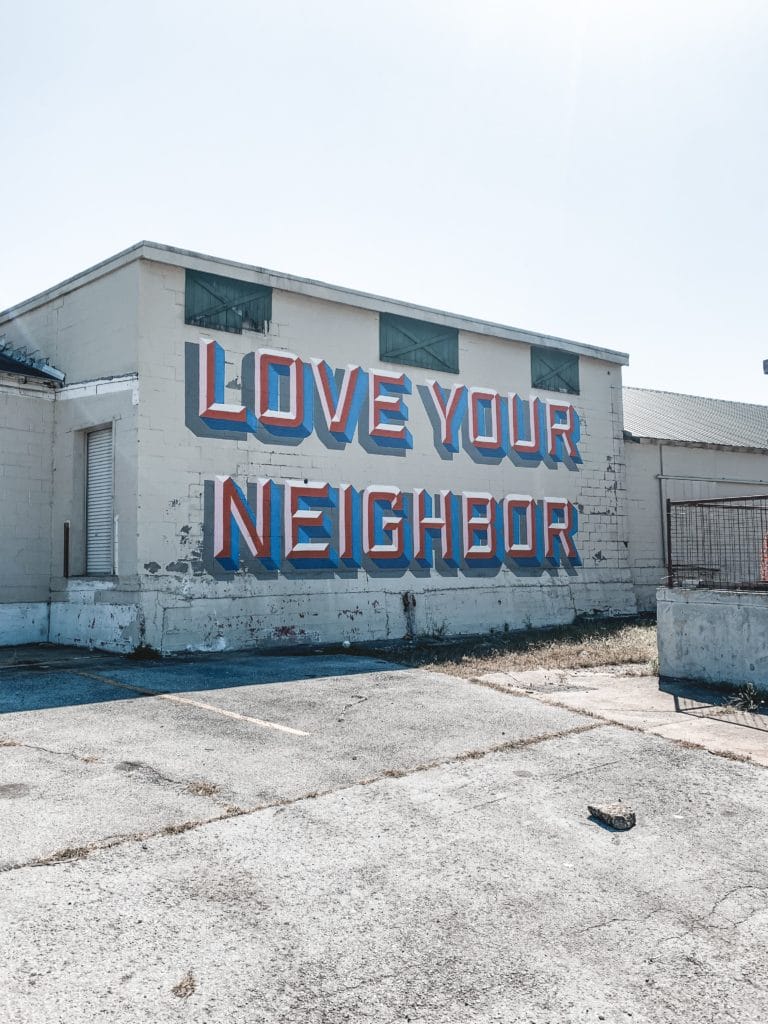4 Ways to Approach Christ-Centered Unity
April 15, 2021
Watching videos and hearing stories of people being punched, beaten, and stripped of their dignity is horrifying. These people look like my friends, they look like my family, and they look like me. The recent hate events across our nation bring back visceral memories of experiencing hate because of my physical identity, and stir up mixed emotions, from anger to sadness and relief.
The national recognition of the struggles of the Asian American Pacific Islander (AAPI) community brings cathartic relief in that we are finally being heard. For too long, this community has stayed silent, caged into the model minority stereotype. It’s time for Christians to rise up and speak out against hate — and for the oppressed to stand with the support of those who recognize the injustice. It’s time to build towards unity.

1️⃣ Created in God’s Image, United by His Spirit
God reveals to us in Genesis 1:27 that He created humanity in His own image: “So God created mankind in His own image, in the image of God, in the image of God He created them; male and female he created them.” This means every human being who’s ever lived has been designed in the very image of God. To be an image-bearer of the Living God is not predicated on race, gender, faith, or any other factor. It’s a gift from the Creator to each one of us.
Furthermore, all who have professed faith in Jesus Christ as their Lord and Savior are given the additional gift of belonging in the Body of Christ through the unity of the Spirit, as Paul teaches us in 1 Corinthians:
Just as a body, though one, has many parts, but all its many parts form one body, so it is with Christ. For we were all baptized by one Spirit so as to form one body — whether Jews or Gentiles, slave or free — and we were all given the one Spirit to drink. — 1 Corinthians 12:12–13
This passage edifies us that, as believers, we have been united by the Spirit of God to “form one body” in Christ Jesus. What does this mean in the context of the current events of our culture? As those who have been united by the power of God’s Spirit, believers are equipped to demonstrate to a hurting world what it looks like to grow in unity, cultivate healing, and vanquish hate.
And we are not simply equipped for this great task but called to it as ambassadors for Christ (2 Corinthians 5:20).
2️⃣ Jesus Calls the Hurting to Forgive First
I was reminded during this Easter weekend that Jesus died for the forgiveness of all our sins. On the cross, as He paid the price for our sin, Jesus represented all of us (Romans 1:16). I was also struck by the truth that, even in indescribable agony on the cross, Jesus forgave the very ones who persecuted Him.
Paul writes in Ephesians 4:32, “Be kind and compassionate to one another, forgiving each other, just as God in Christ forgave you.” Our capacity to forgive comes only from God, the creator of forgiveness and the source of our healing. Because of the forgiveness Christ granted on the cross, we are empowered to forgive others of even their greatest offense.
It is not easy, and it may require time, but we must forgive because ending the hate starts with us, those who are hurt. This first act of forgiveness, in Jesus’ Name and by His power, allows healing and restoration to begin.
3️⃣ Stand for the Hurting & Against the Hate
Jesus’ parable of the Good Samaritan in Luke 10:25–37 is a call and a challenge for us to be neighbors to all. As illustrated in the parable, do we walk by the victims of hate because it’s inconvenient to help? Jesus’ words convict us that when we witness hate, we must act against it. We must reach across divides and “go and show mercy.”
As you consider Jesus’ teaching through this parable, reflect on where you fit into the story. Are you the victim of oppression? Are you someone who’s fallen to the trap of being outwardly pious, but inwardly cold? Or are you, like the Good Samaritan, moved across ethnic dividing lines to show compassion to the hurting?
4️⃣ Learn to Love — Then Do It
John writes in 1 John 4:19, “We love because He first loved us.” This verse teaches us that it’s in response to Christ’s love that we love others. How?
Because I am forgiven, I forgive. Because I am loved, I love. By the transformational power of the Spirit, God is gracious to grow us in this forgiveness and love not only in relation to those who love us back, but with the very ones who persecute us:
You have heard that it was said, “You shall love your neighbor and hate your enemy.” But I say to you, “Love your enemies and pray for those who persecute you,” — Matthew 5:43–44
This is a high challenge, but, throughout Scripture, Jesus paves for us the pathway to unity through forgiveness and unconditional, undeserved love. He lived this from birth to death.
United under Christ and following His footsteps, we can begin to model the kind of love that attracts people to the Gospel and to see hearts and lives made new. As we display the selfless, passionate love of Jesus, we paint a picture of what will one day be the hate-free glory of heaven, where every tribe, nation, and tongue will worship our Creator in perfect unity.
